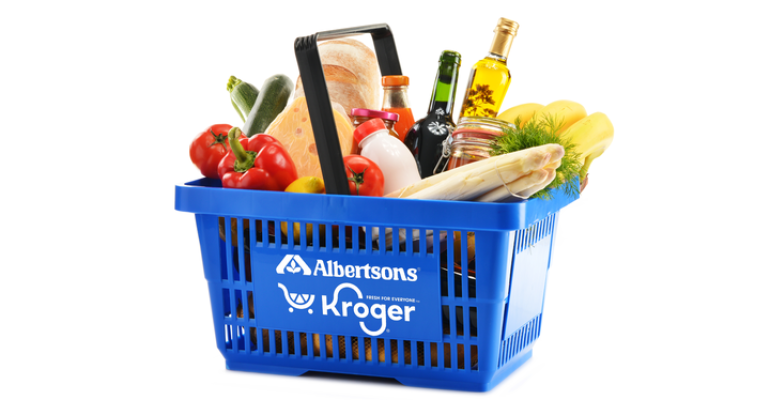Several local United Food and Commercial Workers (UFCW) unions have come out in support of a recent report that finds the $24.6 billion Kroger, Albertsons merger will negatively impact the labor market if it receives government approval.
UFCW Locals 5, 7, 324, 400, 770, and 3000 say the recent study from the University of Utah, “Evaluating the Competitive Effect of the Proposed Kroger-Albertsons Merger in Labor Markets,” comes to conclusions regarding the effects of the merger that had not been previously considered.
The report, according to the labor unions, indicates that union workers receive higher pay when there are two bargaining counterparties in a given labor market as opposed to when there’s only one. Furthermore, the unions say, the research indicates that increased employer concentration has negative effects on both earnings and work hours as well as job quality for workers.
“Our ability to raise wages and standards in general depends on our ability to pit these companies against one another at the bargaining table…threaten to strike one while directing customers to the other,” presidents of the six labor unions said in a joint statement. “If these two companies were to become just one company, that power would go away and that harms workers as well as customers.”
In an emailed statement to Supermarket News, Kroger again reiterated how the merger will benefit employees and that if it is blocked, non-union retailers like Walmart and Amazon will gain the upper hand.
“Kroger’s merger with Albertsons will mean workers gain from $1 billion in higher wages, expanded benefits, long-term job security, and a strong unionized workforce for associates,” a Kroger spokesperson said.
“If the merger is blocked, the non-union retailers like Walmart and Amazon will become even more powerful and unaccountable – and that’s bad for everyone. The growth of non-union retailers led to fewer stores and the loss of more than 200,000 union jobs over the last 20 years. Kroger has bucked that trend, expanding access to affordable food and growing union jobs by more than 100,000 over the same time period.”
Back in November, Kroger informed the Federal Trade Commission (FTC) that it had met all the antitrust law requirements, including the sale of 413 Kroger and Albertsons to C&S Wholesale Grocers once the deal is approved, and the agency is now next to act.
The FTC has until Dec. 15 to make a decision on the merger and can do one of the following: close its investigation and let the deal proceed; ask for certain requirements before the merger is approved; or take legal action in the federal district court and block the deal.
During Kroger’s third quarter earnings call on Nov. 29, CEO Roger McMullen said integration planning with Albertsons was going well and the two grocers continue to make progress towards the first goal which is to assure continuity with workers and shoppers at closing.
McMullen was confident the merger would be approved soon, even as early as the first quarter of 2024.
Unions have been expressing their opposition about the deal since it was announced in October 2022.
The national UFCW, which consists of 1.3 million members, said Kroger and Albertsons have not been transparent about the impact the merger will have on workers.
“Given the lack of transparency, and the impact a merger between two of the largest supermarket companies could have on essential workers – and the communities and customers they serve – the UFCW stands united in its opposition to the proposed Kroger and Albertsons merger,” said UFCW International President Marc Perrone.





